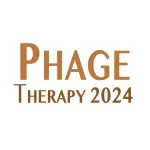(Press-News.org) Obesity interventions, such as gastric bypass surgery, can alter the signaling of the vagal nerve, which plays a crucial role in regulating digestion. In addition to traditional obesity interventions, new weight-management medications, such as Wegovy, are becoming increasingly popular options for patients with obesity since they are non-invasive and require minimal lifestyle modifications. Developing a variety of non-invasive, convenient weight-management options for patients with obesity is essential to help reduce comorbidities such as diabetes, hypertension, cancer and heart disease.
Investigators from Brigham and Women’s Hospital, a founding member of the Mass General Brigham healthcare system, and MIT have created a pill-size device, called the vibrating ingestible bioelectronic stimulator (VIBE),that safely travels through the gastrointestinal tract and takes up space in the stomach by vibrating upon contact with gastric fluid, stimulating vagal nerve receptors and creating the sensation of fullness. The team placed the device in the stomach of swine and saw an average of 31% reduction in food intake. Additionally, the research team found that the device remained in the digestive system, on average, for 30 minutes, suggesting that it should be swallowed before meals. While additional preclinical studies are needed, the findings suggest that the ingestible device could be an effective and sustainable method to prevent weight gain and reduce the number of calories consumed during meals.
“Our study demonstrates the effectiveness of a low-cost, non-invasive intervention to reduce food intake and calorie consumption. The device functions effectively in the stomach and induces satiety,” said corresponding author Giovanni Traverso, MB, PhD, MBBCH, a gastroenterologist in the Division of Gastroenterology, Hepatology and Endoscopy at the Brigham. “The device has the potential to revolutionize therapeutic options for patients with obesity. However, future studies will need to explore the physiological effects of the device before it’s available for patients.”
in Science Advances.
Obesity interventions, such as gastric bypass surgery, can alter the signaling of the vagal nerve, which plays a crucial role in regulating digestion. In addition to traditional obesity interventions, new weight-management medications, such as Wegovy, are becoming increasingly popular options for patients with obesity since they are non-invasive and require minimal lifestyle modifications. Developing a variety of non-invasive, convenient weight-management options for patients with obesity is essential to help reduce comorbidities such as diabetes, hypertension, cancer and heart disease.
Investigators from Brigham and Women’s Hospital, a founding member of the Mass General Brigham healthcare system, and MIT have created a pill-size device, called the vibrating ingestible bioelectronic stimulator (VIBE),that safely travels through the gastrointestinal tract and takes up space in the stomach by vibrating upon contact with gastric fluid, stimulating vagal nerve receptors and creating the sensation of fullness. The team placed the device in the stomach of swine and saw an average of 31% reduction in food intake. Additionally, the research team found that the device remained in the digestive system, on average, for 30 minutes, suggesting that it should be swallowed before meals. While additional preclinical studies are needed, the findings suggest that the ingestible device could be an effective and sustainable method to prevent weight gain and reduce the number of calories consumed during meals.
“Our study demonstrates the effectiveness of a low-cost, non-invasive intervention to reduce food intake and calorie consumption. The device functions effectively in the stomach and induces satiety,” said corresponding author Giovanni Traverso, MB, PhD, MBBCH, a gastroenterologist in the Division of Gastroenterology, Hepatology and Endoscopy at the Brigham. “The device has the potential to revolutionize therapeutic options for patients with obesity. However, future studies will need to explore the physiological effects of the device before it’s available for patients.”
in Science Advances.
END
Novel ingestible devices developed to create the illusion of satiety
2023-12-22
ELSE PRESS RELEASES FROM THIS DATE:
The stomach bug that may raise your risk of Alzheimer’s disease
2023-12-22
A common stomach bacteria found in two thirds of the world population may be linked to a higher risk of Alzheimer’s disease, new research suggests.
The study, published in Alzheimer's & Dementia: The Journal of the Alzheimer's Association, investigated whether a clinically apparent Helicobacter pylori (H. pylori) infection increased the risk of Alzheimer's disease in people aged 50 and older. The prevalent infection can trigger indigestion, gastritis, ulcers, and even stomach cancer.
A team of McGill University researchers analyzed health data of over 4 million people in the United Kingdom aged 50 and above between 1988 and 2019. It found ...
Malta Targeting Phage Therapy 2024: The next clinical revolution
2023-12-22
Building on the momentum of the 6th World Congress on Targeting Phage Therapy, that gathered more than 150 attendees from over 30 countries and featured over 71 presentations, the highly anticipated Targeting Phage Therapy 2024 is set to unfold.
Mark Your Agendas for the 7th World Congress on Targeting Phage Therapy
Date: June 20-21, 2024
Location: Corinthia Palace, Malta
What to Expect:
Cutting-edge insights into phage therapy advancements and its potential to revolutionize medicine.
Engaging keynotes and expert panels tackling ...
Signed orders sent via mail nearly doubled liver cancer screening rates
2023-12-22
Liver cancer screening among patients with cirrhosis almost doubled when they were mailed a signed order from their specialist, according to a new study from the Perelman School of Medicine at the University of Pennsylvania. However, when researchers added an incentive of $20 to the mailed orders, it made no difference in whether patients completed their screenings. The work was published this week in Hepatology Communications.
“Our findings show that an approach like this can meaningfully increase liver cancer surveillance, ...
Strong connections found between vaccine hesitancy and support for vaccinating pets
2023-12-22
Texas A&M University School of Public Health research on attitudes toward pet vaccination and how they may be linked with human vaccine hesitancy was the subject of a new study recently published in the journal Vaccine.
Simon Haeder, Ph.D., associate professor, analyzed data from an August 2023 survey of more than 2,000 dog and more than 1,400 cat owners to measure pet vaccination rates, perceptions of vaccines and support for pet vaccination requirements.
“Decreasing pet vaccination rates pose challenges to society for a number of reasons, including increased incidents ...
Laser-driving a 2D material
2023-12-22
Writing in Nature Communications on November 24, engineers at Columbia and theoretical collaborators at the Max Planck for the Structure and Dynamics of Matter find that pairing laser light to crystal lattice vibrations can enhance the nonlinear optical properties of a layered 2D material.
Cecilia Chen, a Columbia Engineering PhD student and co-author of the recent paper, and her colleagues from Alexander Gaeta’s Quantum and Nonlinear Photonics group used hexagonal boron nitride (hBN). hBN is a 2D material similar to graphene: its atoms are arranged in a ...
UTHealth Houston researchers find link between lonely veterans and firearm purchases
2023-12-22
Low-income U.S. veterans who are experiencing feelings of loneliness are more likely to purchase firearms, according to new research from UTHealth Houston.
A study led by principal investigator Alexander Testa, PhD, assistant professor, and co-investigator Jack Tsai, PhD, professor, from the Department of Management, Policy and Community Health with UTHealth Houston School of Public Health, was published recently in Social Science & Medicine.
“Loneliness was significantly associated with a higher likelihood ...
Flavonoid supplement reduces swelling after total knee arthroplasty
2023-12-22
Waltham — December 19, 2023 — For patients undergoing total knee arthroplasty (TKA), treatment with diosmin – a flavonoid supplement derived from citrus fruits –reduced swelling of the knee and leg and some measures of associated pain can be achieved, reports a clinical trial in The Journal of Bone & Joint Surgery. The journal is published in the Lippincott portfolio in partnership with Wolters Kluwer.
"The use of diosmin after TKA reduced lower-extremity swelling and pain during motion and was not associated with an increased incidence of short-term complications involving the outcomes studied," according ...
Two types of CBT are equally effective in the treatment of fibromyalgia
2023-12-22
There does not appear to be any profound differences between so-called exposure-based CBT and traditional CBT in the treatment of fibromyalgia, according to a study led by researchers at Karolinska Institutet. Both forms of treatment produced a significant reduction in symptoms in people affected by the disease. The study is one of the largest to date to compare different treatment options for fibromyalgia and is published in the journal PAIN.
About 200,000 people in Sweden currently live with fibromyalgia, a long-term pain syndrome that causes great suffering for patients through widespread pain, fatigue, and stiffness in the body. There is no cure ...
Fewer hospital admissions when people are fitter
2023-12-22
People who maintain or increase their aerobic fitness are at less risk of being hospitalized in future, particularly if they were hospitalized previously. These are the findings of a study conducted at the University of Gothenburg.
Regular physical activity is linked to a number of health benefits, including a reduced risk of developing and dying from cardiovascular disease. However, there has been little research into the link between development of aerobic fitness and the likelihood of being hospitalized.
The study in question, published in the European Journal of Preventive Cardiology, includes ...
Ongoing brain injury caused by COVID-19 may not always be detected by routine tests
2023-12-22
A new study published today (22 December 2023) in Nature Communications details that markers of brain injury are present in the blood many months after COVID-19 infection, despite inflammation blood tests being normal.
The findings represent a major output from the University of Liverpool and King’s College London led COVID-19 Clinical Neuroscience Study (COVID-CNS) and also involves scientists from the ISARIC4C consortium, The Pandemic Institute and the NIHR BioResource.
Professor Benedict Michael, Principal Investigator and Director of the University of Liverpool’s Infection Neuroscience Laboratory ...



